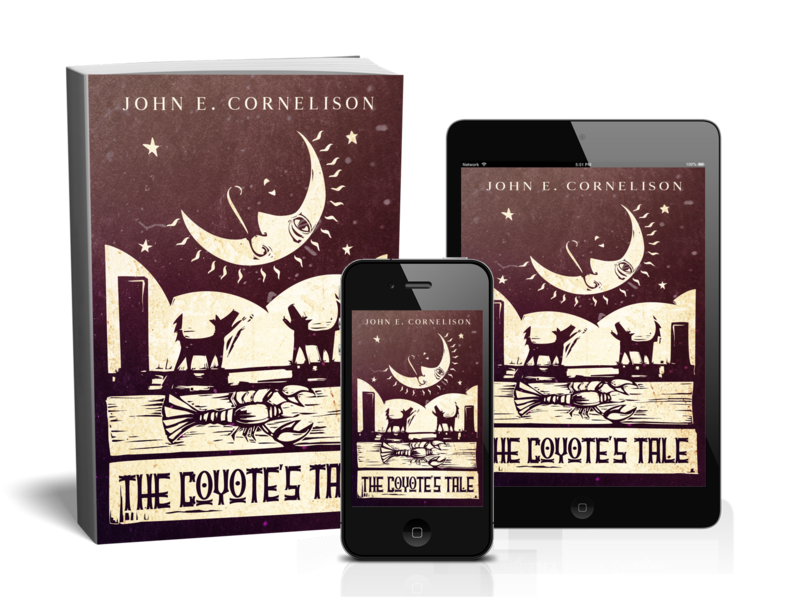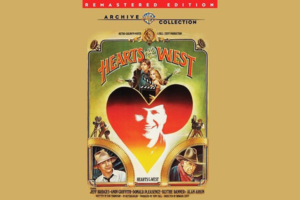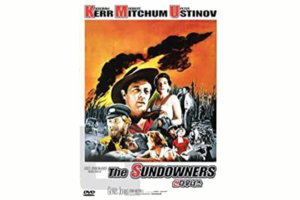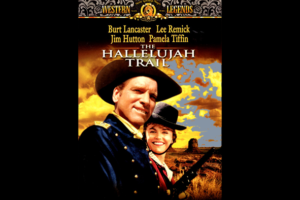
Of course he’s unhappy, he’s been unhappy ever since he lost the war. I keep trying to tell him it’s not his fault, he won’t take my word for it.


Hello to all of the classic people that are returning, I am glad you are back. I want to welcome any new visitors. As a technical note, references and citations are listed for each show on the site at classicmovierev.com. Today on the Classic Movie Reviews Podcast, we are taking on The Yakuza (1974).
This is a rather strange movie that is clearly in the 1970s style. Robert Mitchum is good as he teaches a younger character, played by Richard Jordan. The film has some shocking elements as it delves into Japanese concepts of honor and debt.
“Yakuza, also known as ‘the extreme path,’ are members of transnational organized crime syndicates originating in Japan. They call themselves chivalrous organizations. The Yakuza are notorious for their strict codes of conduct, their organized fiefdom nature, and several unconventional ritual practices such as yubitsume or amputation of the left little finger. Members are often described as males with heavily tattooed bodies and slicked hair.”[1] [Edited quote].
On March 20, 1975, New York Times film critic Vincent Canby wrote in an article titled ” ‘The Yakuza,’ a Cinematic Hybrid About Obligation”:
Beware “The Yakuza.” This movie, which opened yesterday at the Criterion and Beekman theaters, is a cinematic hybrid that crosses American stars, writers and a director with a popular Japanese film form. To come upon it unsuspecting is a little like opening an Almond Joy wrapper and finding inside the arrangement of fish, rice and seaweed known as nori maki.
The effect is surprising; the contents prove, upon examination, not unattractive; but the product as a whole has a potential for evoking revulsion or ridicule from anyone whose mind clenches at the exotic or whose heart is firmly set upon an Almond Joy[2].
The great film critic Roger Ebert rates this movie 3.5 stars out of 4. He had very nice thing to say about the film, such as: “here’s the first American version of Japan’s favorite genre, the yakuza movie, and it’s a handsome expensive production with a great performance by Robert Mitchum and a scary one by Ken Takakura, Japan’s box office champion.”
But Ebert issues a warning also saying: “a superior action movie, but all the same, it’s for audiences that have grown accustomed over the last few years to buckets of blood, disembowelments and severed hands flying through the air.”[3]
Ebert also says: “both Mitchum and Ken are representatives of an obsolete breed. As the movie’s ads have it, ‘A man doesn’t forget. A man pays his debts’.” Cinephilia & Beyond captioned an article by Sven Mikulec as “Sydney Pollack’s ‘The Yakuza’: The Merging of Two Worlds in a Timeless Gangster Classic.”[4]
iMDB.com has this movie at a reasonably low 7.2.[5] It didn’t fare much better on rottentomatoes.com, with 53 percent on the Tomatometer and 72 percent audience approval.[6] Of course, not all of the mainstream critics liked the film.
I would have to say, following the above, it is an excellent film if you are looking for this kind of movie. I like that it takes the LA detective, played masterfully by Robert Mitchum, and splices this into a Japanese gangster film in the vein of Black Rain (1989). And since it was the first to do so, this film holds an essential place in the history of both genres. This film is sometimes called Neo-Noir, but I am not sure it meets the definition.
Actors – The Yakuza (1974)
Returning
Robert Mitchum plays a former occupation military police officer and semi-retired private eye, Harry Kilmer. This great Film Noir actor was first covered in the fantastic film Out of the Past (1947).
Brian Keith played the role of American businessman George Tanner who starts the action when his daughter is kidnapped. Keith was first covered in The Hallelujah Trail (1965).
Richard Jordan is Dusty; a young American sent to help Harry Kilmer rescue the kidnapped girl. Jordan was first covered in The Friends of Eddie Coyle (1973).
New
Ken Takakura plays Tanaka Ken. Takakura is perfect in this role because he is known for his stoic style of acting, and this character is stiff. Takakura was born in Japan in 1931. Takakura graduate for the Meiji University in Tokyo. Following an audition in 1955, Takakura began getting roles in films like Lightning Karate Blow (1956). He was in the right place and rose with the growing Japanese film industry. He became a star in Japan with Abashiri Bangaichi (1965).
His international films include The Yakuza (1974), Black Rain (1989) as a stoic detective, and Mr. Baseball (1992) as a stoic baseball manager in Japan. His last film was Riding Alone for Thousands of Miles (2005). Takakura died in 2014.
Herb Edelman played the rather strange role of Wheat, an American that stayed in Japan to teach and lives with his cats and massive weapons collection. Edelman was born in 1933 in New York City. He studied acting at Brooklyn College and began professional acting with a touring company in 1961.
He began working on television in 1964 and was prolific in this medium. He is known for a few movies that include Barefoot in the Park (1967), The Odd Couple (1968), and California Suite (1978). Most people would remember him as Dorothy’s husband Stanley on “The Golden Girls” 1985-1992. Edelman died in 1996.
Christina Kokubo played Hanako, the daughter of Eiko. Kokubo was born in Detroit in 1950. Her first movie role is in today’s movie The Yakuza (1974). In 1976, she had a significant role in the star-studded Midway (1976). She appeared on television shows “The Blue Knight” and “Hawaii Five-O” in 1976. Following a small role in Just Between Friends (1986), she landed a long-term role on televisions “St. Elsewhere” 1984-1988. She did more television but never made another full-length movie. She taught for seven years at the Braille Institute in Los Angeles and was a leading force in creating “Changing Perceptions,” a theater for the blind[7]. Sadly, Kokubo died early in 2007 of breast cancer.
Keiko Kishi played the love interest Eiko. She was born in Japan in 1932. She primarily worked in Japanese films. She started acting in 1950. Her best-known movies are Bomeiki (1955), Brother (1960), The Yakuza (1974), Kah-chan (2001), and The Twilight Samurai (2002).
Story – The Yakuza (1974)
The credits roll with a history of Yakuza and their concept of honor. Ripe with ceremony, a non-clan Japanese gangster Kato (Kyôsuke Machida) reports to a clan criminal for an international assignment. He is to go to Los Angeles and is given a piece of cloth.
The credits continue showing the full-body tattoos of the Yakuza members.
At the Port of Los Angeles, Dusty (Richard Jordan) waits for the arrival Kato. The scene cuts, and the piece of cloth, the sleeve of a woman’s dress, is being shown to George Tanner (Brian Keith). Kato tells him he must return to Tokyo within 4-days and settle his business with Tono (Eiji Okada). Kato says if Tanner does not make the trip, he will return with more than a piece of cloth. Dusty comes in with his gun drawn, but Tanner tells him to put it away.
At a beach house, Harry Kilmer (Robert Mitchum) is trying to understand why his plant is dying when the phone rings. It’s is Harry’s old friend Tanner saying that his daughter has been kidnapped. When they meet, Harry wants Tanner to go to the police. Tanner asks Harry to contact Tanaka Ken (Ken Takakura), a man that Tanner says will do anything for Harry.
Harry is not happy about the job. Harry asks about Eiko (Keiko Kishi) and is told he sees her each Christmas at Kilmer House, and she always asks about Harry.
On the ride to the airport, Tanner tells Harry that he is sending Dusty, who is a child of one of their old friends and personal bodyguard for Tanner, along to help. Harry is put on edge when he realizes Tanner has a personal bodyguard and insists that he and Harry not fly on the same plane.
The scene switches to a cemetery in Japan, where Eiko is visiting a marker. Harry and Dusty arrive at the Tokyo airport and are met by another old friend, Wheat (Herb Edelman), who also knows Dusty’s parents. Wheat tells that Dusty’s dad and Harry were the tough guys during the Occupation, and he and Tanner were the brains. Harry, Wheat, Tanner, and Dusty’s dad all served in the Occupation of Japan following World War II. The Occupation by the USA and other allies lasted from August 14, 1945 and ended on April 28, 1952.[8]
Harry and Dusty go to stay at Wheat’s house. Wheat has a traditional Japanese house, but the walls are loaded with guns, swords, and other weapons. Harry asks why Wheat and Tanner are no longer in contact. Dusty cuts his hand with a samurai sword. Harry leaves the house. Wheat gives a lecture on using samurai swords to destroy evil, and then he gives the back story on where Harry has gone.
Following the war, Eiko was left alive with her daughter. Instead of becoming a prostitute, she became a black marketer. Harry and Eiko met in 1949 when he saved her from being killed. They fell in love. Harry took care of Eiko and her daughter Hanako (Christina Kokubo). Eiko said she loved Harry but could never marry him. In 1951, Eiko’s brother, Tanaka Ken, returned after living in the jungle for 6-years following the war.
Tanka Ken thanked Harry for saving his family. He told Eiko that he would never speak to her again because she had placed him in debt to his enemy. Eiko stopped seeing Harry. Harry bought her a coffee house/bar named Kilmer House before leaving the country. Tanka Ken went on to be one of the most successful Yakuza after he turned away from his sister.
Harry arrives at Kilmer House, and it is clear that he and Eiko are still in love. Eiko, who is overcome with emotion, excuses herself to continue closing. Hanako comes in and does not recognize Harry at first. She welcomes Harry back. Eiko and Harry look through photo albums showing their time after the war. When Harry asks about Tanka Ken, the talk gets very tense. After refusing a marriage proposal, Eiko tells Harry how he can get in touch with Tanka Ken.
Harry goes to the Kendo Hall in Kyoto. Kendo is a Japanese martial art that uses bamboo swords and armor to practice swordsmanship[9] and Zen. The next day at the Kendo Hall, dozens of men are practicing, and Tanka Ken is the head instructor. He uses a real samurai sword for his practice. A sign on the wall says, “The sword is the mind, if the mind is right, the sword is right.” When Ken sees Harry, he dismisses the class. Ken greats Harry with a respectful san. Harry says he needs to ask a favor, and Ken replies he has an obligation that he can never repay.
The two men have an awkward conversation about Tono (Eiji Okada) and his Yakuza clan. Ken does not think Tono would kidnap an American student until Harry tells him that Tono and Tanner are in business together. Tanner was supposed to deliver some guns but lost the shipment. Harry tells Ken that Tanner originally lent the money to him to buy Kilmer House for Eiko. Harry asks Ken to speak to Tono. Ken says he is no longer Yakuza but will try.
At Wheat’s home, Harry loads up with pistols for him and Dusty. Harry, Dusty, and Ken head to Tono’s hideout. Harry begins to explain the concept of “giri” to Dusty. It is an obligation to someone, but it is a burden also because it is arduous to repay. The three men approach the hideout. All of the men inside are gambling and not paying attention. The men inside are armed with only swords. Ken is also only carrying a sword.
Harry and Dusty bust inside with their guns drawn. The kidnapped girl is on the floor, drugged. When a gangster enters the room, Dusty shoots him. Ken comes inside but is not seen by the gangsters. When another gangster comes in, Ken chops his arm off. A couple of Tono’s men are killed. They get the girl and another kidnap victim in the car.
A car stops them, and it is driven by Kato. He calls Ken ‘the man that never smiles.’ Kato says Tono will have to know that Ken is using the sword again. Harry and company are allowed to leave.
They return the daughter to Tanner. Harry is worried about retaliation being directed towards Ken. Ken says the entire Yakuza counsel would have to authorize action against Ken.
Harry and Dusty are getting ready to leave Wheat’s home when Eiko comes by. Eiko tells Harry that Ken stopped by after midnight. She says Ken is in danger even though he would never say so. Eiko tells Harry that Ken has a brother, Goro (James Shigeta), who is an advisor to all Yakuza clans.
Harry goes back to Kyoto to meet Goro. Goro tells Harry that Ken referred to him as ‘the strange stranger.’ Goro says Tono will try to kill Ken. Goro shows Harry the ideogram for path and says it can mean obligation as well. Goro says Harry has an obligation to Ken and he must fulfil it. Tono has ordered Ken’s death. If Goro tries to interfere with his brother, Goro will be discredited. Goro says Ken has three choices. He can apologize and be under obligation to Tono, he can be killed, or he can kill Tono. A man in Tono’s position must be killed with a sword, but Harry can kill him with a gun.
Harry struggles with how he will now fulfill his obligation to Ken.
At one of Tono’s hideouts, about 20-men are gambling. Tanner and Kato come in to see Tono. Tanner apologizes and asks if he can help. Tanner bought futures and lost all the money. He never bought the guns. Tanner is ordered to have Harry killed.
Eiko and Hanako are at the house with Wheat, Dusty, and Harry. Hanako explains to Dusty about Yakuza cutting their left pinky off to save their lives if they make a grave offense. Harry leaves to find Ken. He locates him in a brothel, where one of the worst singers ever is crooning about the Yakuza. Harry reminds Ken that Eiko and Hanako will be in danger. Ken refuses to let Harry take the women folks away.
After Harry leaves, three men follow Ken into the bathroom. They tell Ken that they are paid to kill Harry. Ken says Harry is family. They explain that Ken’s death has been paid for as well, but they don’t want to undertake the job.
Ken goes to an arcade. Ken talks to an older man that says Tono wants Ken dead, but he could be stopped if his dealings with Tanner were revealed.
Harry and Dusty go to a Japanese bath. Dusty has a crush on Hanako. A tatted Yakuza man swims underwater and stabs Harry in the belly with a short sword, tantō. Harry overpowers him and stabs the assassin. Before the man dies, he says Tanner sent him. Dusty is shocked.
Everyone goes back to Wheat’s home. Dusty asks Ken about “giri.” Ken says it is more of a burden and is called ‘the burden hardest to bear.’ Dusty asks what happens if you don’t fulfill your obligation. Ken can’t explain why they do it.
Ken comes in, where Eiko is stroking Harry’s hair. She was trying to explain how Tanner was always untrustworthy. Dusty confesses that he was sent by Tanner to watch Harry. He says Tanner and Tono have been working to take over Goro’s position. Dusty has been ordered out by Tanner, but he now asks to stay and help.
Ken and Harry leave to have a discussion. Ken now thinks Harry should take Eiko and Hanako. He implies Harry does not owe him, but Harry has taken up the burden.
Back at Wheat’s house, Hanako is doing the green tea ceremony for Dusty, way before Daniel-San and Kumiko tried it. Just then a group of Yakuza gangster break into the house. They capture Eiko and force Dusty to drop his gun. A total of five men invade the home, including one wearing a hat. Dusty attacks and is stabbed by one of the gangsters. A gangster shoots toward Eiko and Hanako. Dusty is stabbed again.
Ken and Harry come back and join the fighting. Ken uses a bike as a weapon way before Jackie Chan. Harry is using a gun. When he runs out of bullets, the dying Dusty shoots a gangster and saves Harry’s life. Wheat spends the entire fight hollering; please stop it. Yeah, that will work. The guy with the hat escapes. Both Dusty and Hanako are dead.
Harry tells Goro about the attack. Ken shows up unexpectedly. Harry decides he is going after Tono and Tanner. Goro asks that his son not be killed if possible. Goro says he has a spider tattoo on his head. Ken agrees to protect the man. Goro finally tells Harry what everyone knows; Ken is actually Eiko’s husband and not her brother. When Ken returned from the war, he was enraged that his wife and child were living with the enemy. But he was pleased that Harry took care of them as well. This was the basis of Ken’s confused obligation.
Harry goes to the place where Tanner is staying. Harry bursts in and kills the security guards. He finds Tanner and puts a half dozen slugs in him.
Ken again tries to send Harry away, but he refuses. Ken and Harry break into a protected compound. Ken has a sword, and Harry has a couple of pistols and a double-barrel shotgun. Again, all of the gangsters are drinking and gambling. They break-in, and Ken rushes towards Tono. The two men begin a sword fight.
The other gangsters begin shooting at Harry. All hell breaks loose. It’s a real donnybrook with sword and guns. Ken kills Tono while Harry is wearing others out with his guns. Ken faces several swordsmen and says he was only here for Tono. They don’t care, and he has to start killing them off. Ken is checking for spider tattoos as he fights.
Kenny and Harry kill off most of the gangsters much to their own surprise. Harry gets cut, and hat guy comes in. When he takes his hat off, surprise, he has a spider tattoo. But after Ken killed 18 other guys, I would not jump in to fight him. Ken kills the Spider anyway. The wounded and battered Ken and Harry begin to head out. They meet Kato. After Kato looks around for a second, he picks up a sword. Tired and hurt, Ken still easily defeats him. Ken kills the man while he is on the ground.
Ken goes to the cemetery to pray at Hanako grave. He also prays to his father for killing his nephew. Harry says goodbye to Eiko. Goro says the police believe the killing was a feud between Tanner and Tono. Ken begins to pull out a knife to kill himself for his murder of his nephew. His brother forbids it. Ken pulls out the knife and cuts the pinky off his left hand. He gives it wrapped in a handkerchief to his brother. When the brother accepts the debt for the dead nephew is paid.
Harry says he is going back to the US, and Ken is going back to Kyoto. Harry is riding to the airport in a taxi when he asks the driver to turn around. In a flashback, Harry tells Wheat that he has destroyed Ken’s past and future. Harry arrives at Ken’s apartment and asks for a formal meeting. While Ken is making tea, Harry takes out a handkerchief and a knife. He cut the pinky off his left hand and wraps it up.
When Ken returns, he cannot believe what has happened. Harry says he has brought pain into Ken’s life in the past and present. Harry offers the severed finger to Ken. Harry asks that Ken forgive him and Eiko. Finally, Ken accepts and says, ‘no man has a greater friend.’
Ken and Harry say goodbye at the airport. Each man has a bandaged left hand. Harry takes one last look back at Japan and bows to Ken. Ken returns the bow.
I’ll be right back with conclusions and the World-Famous Short Summary following a word from our sponsors.
Summary – The Yakuza (1974)
When I was growing up, it was not uncommon to hear a news story ever years or so that a Japanese soldier had been found on an island and finally surrender. This happened for several reasons. Some believed the Japanese Emperor was divine and could not be defeated. Others thought the surrender announcement was a trick. Still, others just refused to give up because of their ideological beliefs—damn Confederates.
The last Japanese soldier to come out of hiding during World War II was Hiroo Onoda. He was transferred to one of the smaller Philippine islands on December 26, 1944. He and two other soldiers went into the jungle to keep up resistance, as was the general order. He continued to resist surrender until March 9, 1974. At that time, he was 52 years old.[10] The other two men were killed earlier as they carried out actions that to them that were war, but to the locals were acts of terrorism.
Private Nakamura, born in Taiwan, was discovered later that Onoda, but he is not listed as the last “Japanese” soldier. Nakamura came in on December 18, 1974.[11]
World-Famous Short Summary – with friends like these, who needs enemies
Beware the moors
[1] https://en.wikipedia.org/wiki/Yakuza
[2] https://nyti.ms/3aUDYb3
[3] https://www.rogerebert.com/reviews/the-yakuza-1975
[4] https://cinephiliabeyond.org/sydney-pollacks-the-yakuza-the-merging-of-two-worlds-in-a-timeless-gangster-classic/
[5] https://www.imdb.com/title/tt0073918/
[6] https://www.rottentomatoes.com/m/the_yakuza1975
[7] https://en.wikipedia.org/wiki/Christina_Kokubo
[8] https://en.wikipedia.org/wiki/Occupation_of_Japan
[9] https://en.wikipedia.org/wiki/Kendo
[10] https://allthatsinteresting.com/hiroo-onoda
[11] https://en.wikipedia.org/wiki/Japanese_holdout









